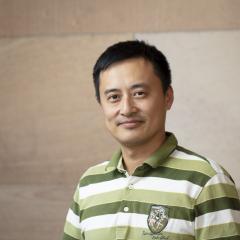Division-based single-cell-sequencing
Full title
Decoding temporal control of cell differentiation by division-based single-cell-sequencing probe.
Aim
The main aim of the project is to design a method of recognition of cell division which is compatible with single-cell RNA-sequencing (scRNA-seq) and to invent a patentable molecular probe as the horsepower of this method. This advancement will uncover temporal factors regulating cell differentiation in association with cell division. division-based single-cell-sequencing, as an addon to scRNA-seq technology, would allow researchers to track cell divisions in conjunction with transcriptomics and it will open up new avenues to the discovery of master regulators and key components involved in the process of cell differentiation in many types of proliferating cells including immune, cancer, or stem cells. For instance, during immune responses or immunotherapies, T cells undergo multiple rounds of division to form phenotypically and functionally distinctive subsets. Understanding the regulators of this process will not only provide critical insights for fundamental immunology but also identifies new targets for immunotherapies. With the introduction of this methodology, we will innovatively design molecular probes that will be patented products with genuine commercialisation potential.
Brief project outline
In the initial phase, we try to test the ability of a prototype of the probe to intercalate in cell membrane and to distinguish multiple generations of the dividing cells. The second part of the project mainly focuses on synthesis and characterisation of the probe. Finally, this probe will be utilised in context of in vivo cell division and differentiation using several mouse models. Briefly, naïve CD4 or CD8 T cells will be labelled with the probe and injected into recipient mice, followed by the induction of immune responses (immunisation and infection) for cell division and differentiation. All injected cells will be purified for scRNA-Seq. A new method will be developed to incorporate single-cell transcriptomics data and single-cell division indexing, followed by the mathematical modelling of the trajectories of gene expression and cell fate decision associated with cell division.
Genomics-based innovative aspect of proposal
Methods of barcoding cells with oligonucleotides are becoming popular in biological and immunological contexts with the purpose of adding dimensions to genomics or transcriptomics and multiplexing the high-throughput data, but to our knowledge, no barcoded probe with the ability of recognising cell division has been reported to date. Therefore, this tool might be a first-in-class probe which can be potentially used to reveal the generation cells belong to in any kind of cells with proliferative capability. This method fills a gap in scRNA-seq data which is the temporal transposition of cell subtypes seen in the final plot. It empowers immunologists, developmental biologists, cancer scientists, etc. to draw a storyline of very early and fundamental alterations in cell transcripts or genome and identify the gradual shifts in dominant drivers of the cell’s fate.
Broad applicability of the technique
This method could be utilised universally by a broad range of biologists who are interested in simultaneous assessment of cell division and transcriptomics or genomics to discover temporal alterations in cells during differentiation. This knowledge is of interest for immunologists, cell biologists, developmental biologists, and oncologists particularly to identify key regulators of the cell’s fate at early stages of proliferation.






